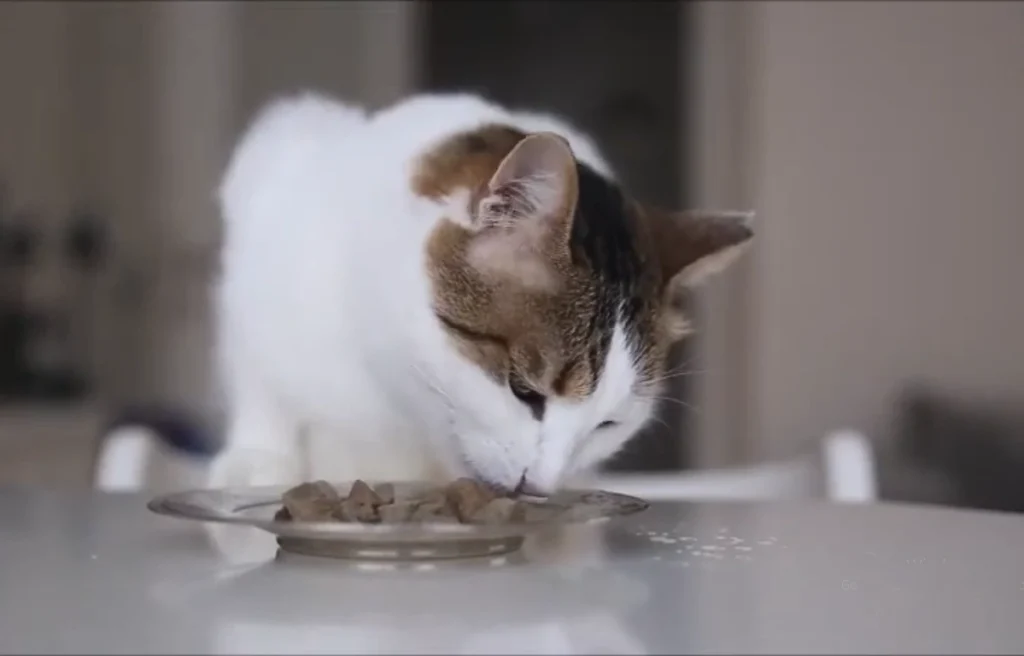Is Beef Liver Good for Cats? Nutritional Benefits and Considerations
By: Lana Koh

The information in this article is intended to educate cat parents and is not a substitute for veterinary guidance. In case of any concerns about your cat’s health, please talk with your veterinarian.
Beef liver can be a nutritious treat for cats, but it should be given in moderation. While it offers important vitamins and nutrients, it should not be a staple in their diet. Many pet owners wonder if this organ meat can contribute positively to their cat’s health and what the best feeding practices are. Understanding how to safely incorporate beef liver into a cat’s diet can help ensure they enjoy its benefits without any drawbacks.
Feeding beef liver can provide essential vitamins such as A, B, and D, along with significant protein content. However, it’s crucial to balance these benefits with the potential risks, such as vitamin A toxicity from overfeeding. Proper portion sizes and frequency play a vital role in making beef liver a safe and enjoyable addition to a cat’s meals.
In this article, readers will find insights into the nutritional advantages of beef liver, how it compares to other liver types, and what precautions to take. By gathering this information, cat owners can make informed choices about their pet’s diet.
Key Takeaways:
- Beef liver offers essential vitamins and nutrients for cats.
- It should be fed in moderation to prevent health risks.
- Proper preparation and portion sizes ensure safe consumption.
Also Read: Do Cats Eat Mice?
Nutritional Benefits of Beef Liver for Cats
Beef liver is a highly nutritious food for cats, offering essential proteins, vitamins, and minerals. Understanding these benefits can help pet owners make informed dietary choices for their feline companions.
High-Quality Protein Source
Beef liver is an excellent source of high-quality protein, which is vital for a cat’s health. Cats are obligate carnivores, meaning they rely on animal-based proteins to thrive. The proteins in beef liver provide essential amino acids that support muscle development and overall growth.
In addition, consuming protein helps maintain a healthy immune system and aids in healing. Just a small amount of beef liver can greatly boost a cat’s protein intake without overwhelming its diet.
Essential Vitamins and Minerals
Beef liver is packed with essential vitamins and minerals that are crucial for a cat’s well-being. One of the standout nutrients is vitamin A, which is important for vision and immune function.
Moreover, beef liver contains:
- Vitamin B12: Supports brain health and red blood cell formation.
- Iron: Essential for oxygen transport in the blood.
- Copper, zinc, and phosphorus: These minerals support various bodily functions, including enzyme activity and bone health.
Including beef liver in a cat’s diet can help meet these nutritional needs effectively.
Also Read: Can Cats Eat Tuna?
Taurine for Heart and Eye Health
Taurine is an amino acid found abundantly in beef liver, and it plays a critical role in a cat’s health. It is essential for maintaining optimal heart function and is crucial for good vision.
Without enough taurine, cats may face health issues like heart disease and vision problems. Beef liver offers a concentrated source of taurine, making it a beneficial addition to their meals.
Overall, incorporating small amounts of beef liver can provide cats with the nutrients necessary for healthy heart and eye function.
Comparing Liver Types and Feeding Methods
When considering liver for cats, it’s essential to evaluate the different types of liver and how they can be prepared. This section will explore the differences between various animal livers, the pros and cons of different cooking methods, and the appropriate portion sizes and feeding frequency for a balanced diet.
Beef vs Other Animal Livers
Beef liver is often considered a popular choice for cats due to its rich nutrient profile. It is high in vitamins A, B12, and iron.
Other options include lamb liver, chicken liver, and duck liver. Each type has its unique benefits. For instance:
- Lamb Liver: Contains higher fat content, making it a richer option.
- Chicken Liver: Easier to digest for kittens and has a milder flavor.
- Duck Liver: Known for its luxurious texture and taste.
As per USDA National Nutrient Database, each 100gm of Beef liver contains following:
| Beef Liver | Lamb Liver | Chicken Liver | |
| Calories (kcal) | 135 | 139 | 119 |
| Protein | 20.36 | 20.38 | 16.92 |
| Fat (g) | 3.63 | 5.02 | 4.83 |
| Iron (mg) | 4.9 | 7.37 | 8.99 |
| Vitamin A (RAE) | 4968 | 7391 | 3296 |
| Vitamin A (IU) | 16898 | 24612 | 11078 |
Each type can be beneficial, but beef liver should be fed in moderation to avoid vitamin A toxicity.
Read: Can Cats Eat Tofu?
Raw vs Cooked vs Freeze-Dried Liver
Feeding raw liver is gaining popularity among pet owners who practice raw feeding. It retains most nutrients and enzymes. However, there is a risk of bacterial contamination.
Cooking liver can kill harmful bacteria but may reduce some nutrient levels. Boiled or lightly cooked liver can still be nutritious and is safer for cats.
Freeze-dried liver, like that from brands such as Northwest Naturals, offers a convenient and shelf-stable option without losing essential nutrients. It is easy to serve and often well-accepted by cats.
Appropriate Portions and Frequency
When incorporating liver into a cat’s diet, knowing the right portion size is crucial. Liver should not exceed 5% of their daily food intake.
For example:
- Adult Cats: Approximately 1 ounce of liver per week.
- Kittens: Smaller amounts due to their delicate digestive systems.
Feeding liver too frequently can lead to nutrient imbalances. For a well-rounded diet, it’s best to mix liver with high-quality canned food or other proteins. This approach promotes a balanced nutrient intake while satisfying a cat’s taste preferences.
Potential Health Considerations
When considering beef liver for cats, it’s important to understand the potential health risks. Factors such as vitamin A toxicity, fat content, and the need for a balanced diet should all be considered to ensure feline health.
Read: Is Pumpkin a good food for Cats?
Vitamin A Toxicity
Beef liver is high in vitamin A, which can be harmful in large amounts. While cats need this vitamin for vision and immune function, too much can lead to toxicity. Symptoms may include vomiting, weight loss, and lethargy.
It is crucial to limit liver intake and avoid serving it daily. A good rule is to offer liver as a treat no more than every two weeks. This way, a cat’s metabolism can handle the vitamin levels without leading to health problems.
Balancing Fat Content
Beef liver also contains a significant amount of fat. While cats require fat in their diet for energy and healthy skin, excessive fat can lead to obesity and related health issues.
It’s important to consider how the fat content in liver fits into the overall diet. Pet food should provide a guaranteed analysis of fat content. Cats may benefit from a balanced diet that includes other protein sources with lower fat levels.
Ensuring a Balanced Diet
A cat’s diet must be balanced to support its overall health. Along with nutrient-dense foods like liver, they need a mix of proteins, fats, and fiber. Fiber, in particular, helps with digestion and can prevent issues like hairballs.
Pet owners should consult with a veterinarian when adding new foods. Proper guidance ensures that feeding liver does not disrupt the overall nutritional balance. A well-rounded diet helps maintain metabolism and supports optimal health.
Click To Read: Can Cats Eat Tortillas?
Frequently Asked Questions
There are important considerations when feeding beef liver to cats. Specific concerns include allergies, dental health, kidney conditions, and safe cooking practices. Understanding these factors helps ensure the health and well-being of feline companions.
Final Thoughts
Beef liver can be a nutritious addition to a cat’s diet, offering essential vitamins like A, B12, and taurine, which support vision, immune function, and heart health. However, moderation is key, as overfeeding can lead to vitamin A toxicity or nutrient imbalances. By incorporating beef liver in appropriate portions and balancing it with other high-quality proteins, cat owners can ensure their pets reap the benefits without risking their health.
Understanding the nutritional value and potential risks of beef liver allows pet owners to make informed decisions. Whether served raw, cooked, or freeze-dried, proper preparation and portion control are crucial. Consulting a veterinarian for tailored dietary advice ensures a safe and balanced approach to feeding beef liver, promoting long-term feline well-being.

About the Author
Lana Koh
Lana is a passionate cat lover with years of experience caring for her feline companions. As a dedicated volunteer at animal shelters, she’s gained valuable insights into the world of cats. Lana channels her love and knowledge into writing informative and engaging articles for fellow pet owners, covering topics like cat health, nutrition, grooming, behavior, and the special bond we share with our feline friends.
